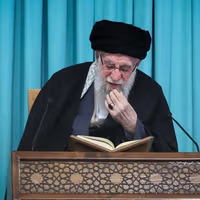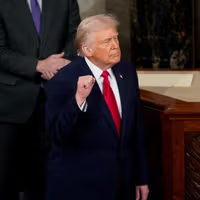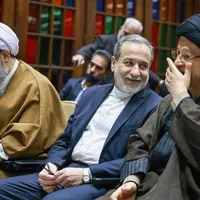Recent departures and high-profile clashes demonstrate that misgivings within the 18-month-old administration have spilled into public view.
Fayyaz Zahed, a senior adviser, publicly quit last week.
In a sharply worded letter, Zahed denounced several recent appointments as “embarrassing” and reflective of “bad taste,” singling out the choice of Sagheb Esfahani—a hardliner with no experience in the energy sector—to head Iran’s energy optimization body.
Zahed’s colleague Mohammad Mohajeri later quoted him as telling Pezeshkian: “If you want a silent apologist as your adviser, please be advised that genuine opinion cannot be bought with orders and directives.”
Jafar the kingmaker
Much of the internal disarray is now being linked to the expanding influence of Vice President Mohammad Jafar Ghaempanah—an old friend, wartime companion and arguably the president’s closest confidant.
Reports from Khabar Online and outlets aligned with Majles Speaker Mohammad Bagher Ghalibaf accuse Ghaempanah of driving a series of controversial appointments and sidelining more experienced advisers.
Hardline media have seized on the moment, describing the resignations—grudgingly accepted by Pezeshkian—as evidence of a broader administrative failure, one that neither the president nor his deputies can reverse.
These departures land at a time when Iran’s economy is dragging under renewed sanctions, high inflation, frustrated expectations from the post-election period and a sense that Pezeshkian has struggled to articulate a coherent economic direction.
Hardline outlets including Javan, Kayhan and Sobh-e No have amplified that narrative, arguing that the president’s inability to rein in his inner circle has compounded the economic drift.
The line of attack is clear: factional meddling and poor personnel decisions are not just political missteps—they are undermining governance at a moment of national fragility.
VP Aref next?
Against this backdrop, pro-Ghalibaf media such as Sobh-e No and Khorassan now claim that First Vice President Mohammad Reza Aref has submitted his resignation.
The government has not confirmed the reports. Some accounts suggest the trigger is Aref’s escalating clashes with Ghaempanah and Chief of Staff Mohen Hajimirzai. Others say Aref grew frustrated with the “limited scope” of his role.
Aref himself has been criticized by both conservatives and moderates for taking on more responsibilities than his capacity allowed.
If Pezeshkian accepts Aref’s resignation, Ghaempanah would become the president’s last remaining senior vice president, consolidating his position as the most influential figure in the administration’s inner ring.
One anecdote from a recent provincial visit has circulated widely: after one too many sycophantic compliments from Ghaempanah, Pezeshkian reportedly snapped, “Come off it!”
Sasan Karimi, an aide to former foreign minister Javad Zarif, later quipped on social media: “The country would have been better off if Jafar (Ghaempanah) really did come off it. Sometimes the biggest obstacles lie within the innermost circles.”
Together, the confirmed exit of Zahed, the deepening feud around Ghaempanah, the economic malaise, and the swirl of unverified but persistent reports surrounding Aref paint a picture of an administration under severe strain and struggling to hold itself up.










